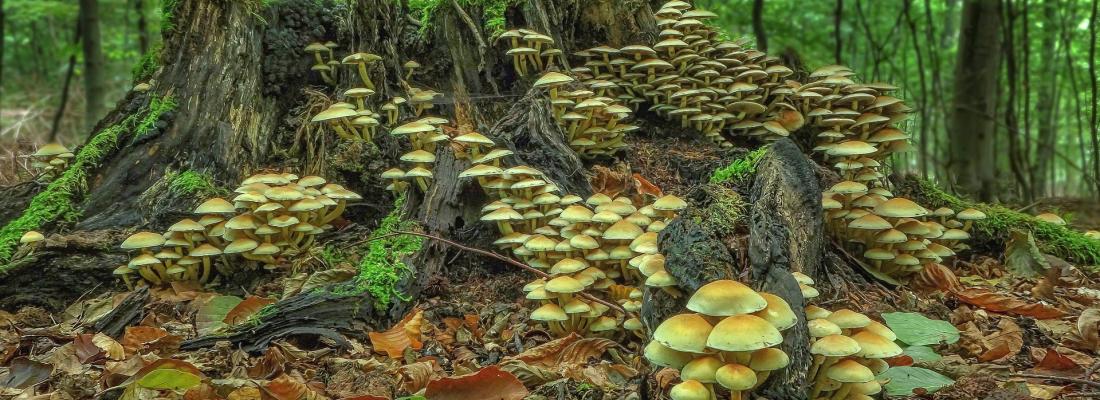Bioeconomy 2 min
Discovery of new enzymatic partners in fungi to valorize biowaste
PRESS RELEASE - The use of natural, renewable resources is essential to ensuring our transition towards a sustainable and environmentally-friendly bioeconomy. Plant cellulose is the most abundant natural and renewable resource, but it is also highly resistant and requires energy-consuming thermal and chemical processes to be valorised by industry. Scientists from INRAE, the Technical University of Denmark, CNRS and Aix-Marseille University have discovered and characterised some new enzymes – AA7 dehydrogenases – that can facilitate cellulose degradation. Their findings, published on 9 April in Nature Communications, open the way towards the development of new enzyme cocktails to make better use of biomass from forestry and agricultural waste. They will lead the way to developing industrial processes that consume less energy and are more environmentally friendly.
Published on 09 April 2021

Developing efficient processes to make better use of natural, renewable resources such as wood or organic waste from agriculture or the food industry is essential to building a sustainable and environmentally friendly bioeconomy. Polysaccharides such as cellulose (from wood and plants), chitin (a component in the shells of most invertebrates) or starch are renewable raw materials that could enable the development of numerous commercial products such as fuels, prebiotic ingredients and biobased materials. However, polysaccharides are extremely resistant and therefore difficult to process under sustainable industrial conditions. In natural ecosystems, filamentous fungi have evolved over several hundreds of millions of years to adapt to degrading these recalcitrant molecules which offer them a source of nutrients. These fungi contain an arsenal of efficient enzymes, and notably oxidative enzymes1 called lytic polysaccharide monooxygenases (LPMO) to degrade cellulose and chitin. This offers an important lever for degrading highly resistant organic matter, but until now regulating the activity of these enzymes in biotechnological processes remained a major challenge.
During this study, the research team2 discovered new fungal enzymes, AA7 dehydrogenases, which can stimulate and maintain LPMO activity. Simple, polyvalent and efficient, AA7 dehydrogenases can accelerate and stabilise degradation bioprocesses for cellulose and chitin and improve the conversion yields of this biomass into bioenergy. This discovery opens the way to developing new enzymatic cocktails that use LPMO and their corresponding AA7 dehydrogenase enzymatic partners to degrade cellulose and chitin. In the longer term, the aim is to develop industrial bioprocesses that are less costly and consume less energy in order to valorize biomass from agricultural waste and the forestry and agrifood industries.
1 Enzyme that catalyzes a reaction composed of a molecule of dioxygen (O2) or hydrogen peroxide (H2O2).
2 The following research units were involved in the study: Fungal Biodiversity and Biotechnology (BBF, the INRAE/AMU/Polytech Marseille), Architecture and Function of Biological Macromolecules (AFMB, CNRS/AMU) and Protein Bioenergy and Engineering (BIP, CNRS/AMU).
|
Reference Majid Haddad Momeni, Folmer Fredslund, Bastien Bissaro, Olanrewaju Raji, Thu Vuong, Sebastian Meier, Tine Nielsen, Vincent Lombard, Bruno Guigliarelli, Frédéric Biaso, Mireille Haon, Sacha Grisel, Bernard Henrissat, Ditte Welner, Emma Master, Jean‐Guy Berrin, Maher Abou Hachem. Discovery of fungal oligosaccharide‐oxidising flavo‐enzymes with previously unknown substrates, redox‐activity profiles and interplay with LPMOs.Nature Communications 12, 2132 (2021). DOI : 10.1038/s41467-021-22372-0 |
